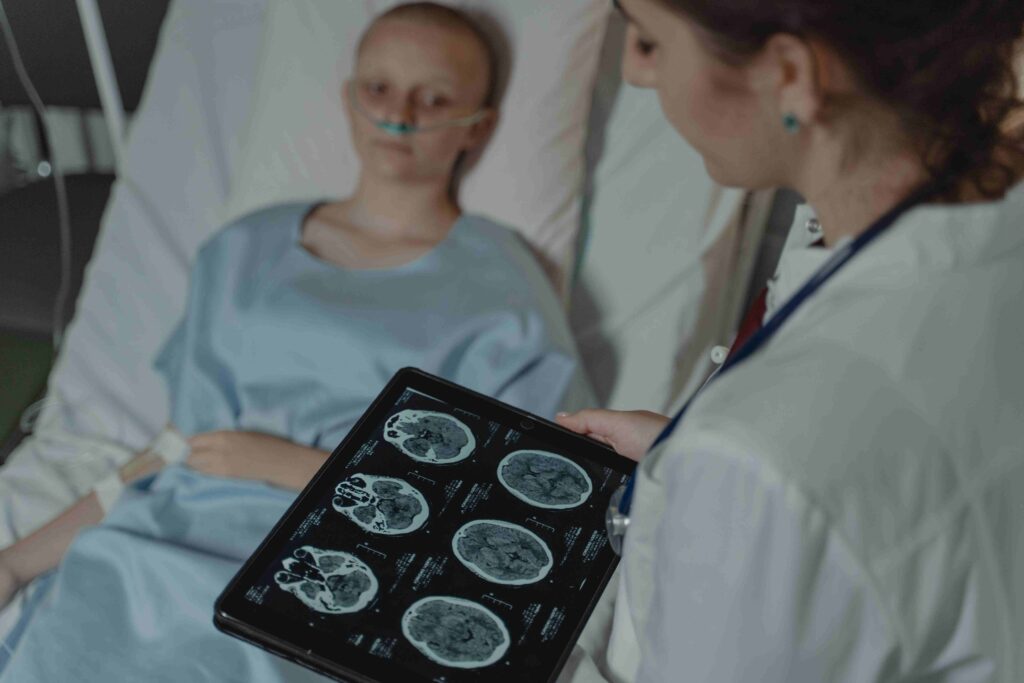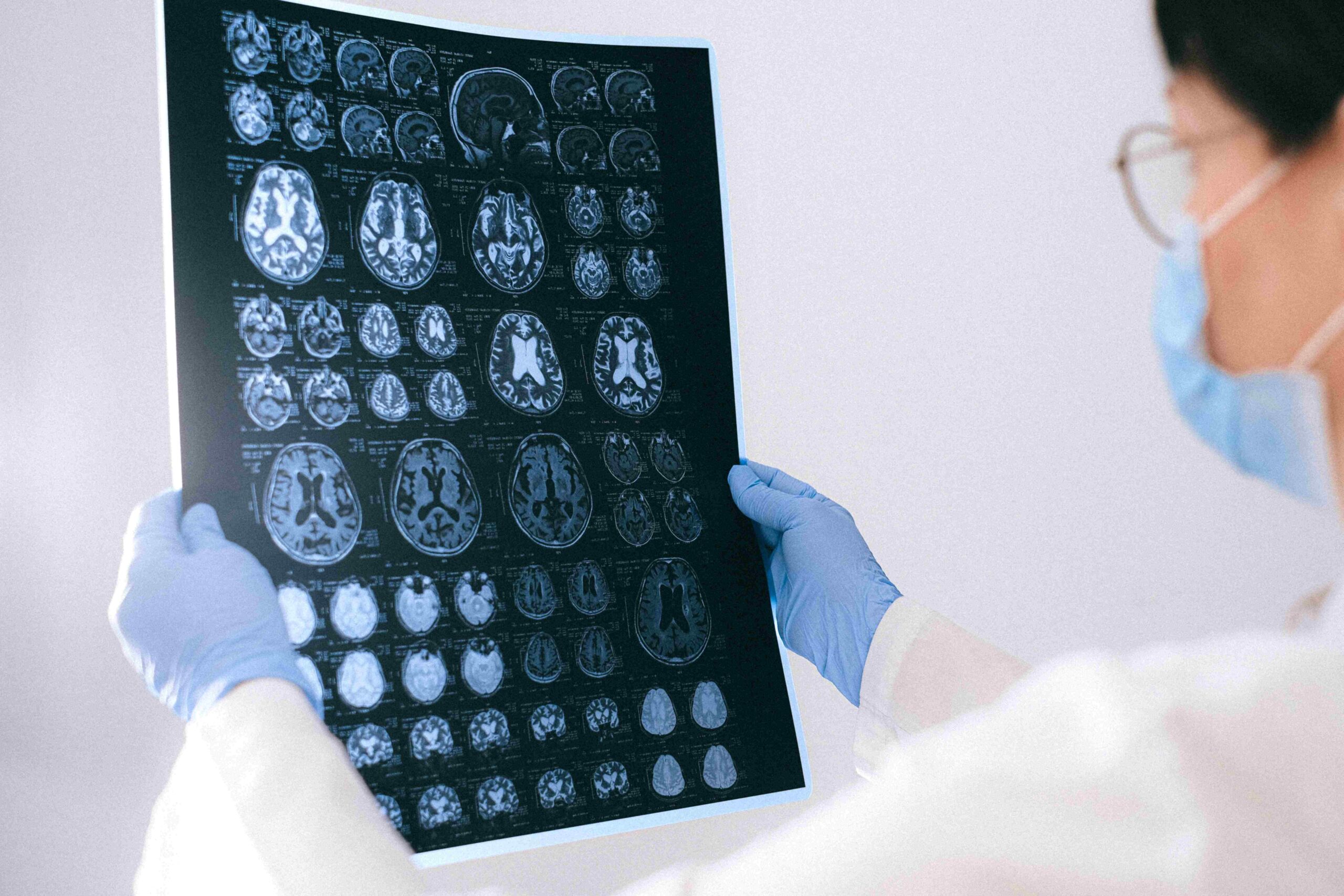Welcome, readers! Today, we dive into a topic that affects millions of lives worldwide – brain tumor symptoms. The human brain is an intricate network of thoughts, emotions, and memories. However, when something goes awry within its delicate structure, the consequences can be devastating.
That’s why in this blog post, we’ll take a closer look at the signs and brain tumor symptoms – those silent invaders that demand our attention for early recognition. Grab a cup of coffee and join us on this journey as we unveil crucial information about these mysterious growths lurking within our minds.
After all, knowledge is power when it comes to safeguarding our most precious organ – the brain!
Introduction to Brain Tumor Symptoms: What are they and why early recognition is important
Brain tumors are abnormal growths in the brain that can originate from different types of cells, including brain cells or other cells that have spread to the brain from other parts of the body. These tumors can be either benign (non-cancerous) or malignant (cancerous), and they can develop in any part of the brain. While some brain tumors may not cause any symptoms, others can lead to serious health complications if left undetected and untreated.
Early recognition of brain tumor symptoms is crucial because it allows for timely diagnosis and treatment, which can significantly improve a person’s chances of survival. In this section, we will discuss what exactly brain tumors are, their different types, and why early recognition is vital.
What are Brain Tumors?

A brain tumor occurs when there is an abnormal growth of cells in the brain. These growths can interfere with normal brain function by pressing on surrounding tissues or blocking essential fluids from flowing through the brain properly. The exact cause of most brain tumors is still unknown; however, certain risk factors such as genetic conditions, exposure to radiation, and family history may increase a person’s chance of developing them.
Types of Brain Tumors
There are over 120 different types of primary (originating within the central nervous system) and secondary (spread from other parts of the body) brain tumors. Each type has its own unique characteristics and treatment options. Some common types include meningioma (arising from membranes covering the surface of the brain), glioma (developing from glial cells), pituitary adenomas (growing in the pituitary gland), and metastatic tumors (spreading from cancers in other parts of the body)
Why Early Recognition Matters?
Early detection plays a critical role in successfully treating a brain tumor. This is because as a tumor grows larger, it can cause increased pressure in the brain, leading to severe brain tumor symptoms and complications. These brain tumor symptoms may include headaches, seizures, changes in vision or hearing, difficulty with balance or walking, memory loss, and personality changes.
Moreover, early detection also allows for a more accurate diagnosis and treatment plan. This means that doctors can determine the type of tumor and its location before developing a personalized treatment approach. In some cases, this may involve surgery to remove the tumor or other treatments such as radiation therapy or chemotherapy.
Brain tumors are abnormal growths in the brain that can be either benign or malignant. Early recognition is crucial because it enables timely diagnosis and treatment, which can greatly impact a person’s chances of survival. It is essential to pay attention to any potential warning signs and seek medical advice if you experience any concerning brain tumor symptoms related to brain tumors.
Common brain tumor symptoms
A brain tumor is a potentially life-threatening condition that occurs when abnormal cells grow in the brain. As with any medical condition, early recognition and treatment of brain tumors is crucial for better outcomes. However, since the symptoms of brain tumors can vary widely depending on the location, size, and type of tumor, it can be challenging to recognize them in the early stages. In this section, we will discuss some common brain tumor symptoms that should not be ignored.
Headaches
Headaches are one of the most common brain tumor symptoms experienced by people with brain tumors. These headaches may differ from regular headaches in terms of intensity and frequency. They tend to be more severe and persistent, often worsening over time and becoming more frequent.
Seizures
Seizures are another common brain tumor symptoms of a brain tumor. They occur when there is abnormal electrical activity in the brain and can manifest as muscle jerking, loss of consciousness, or convulsions. Seizures caused by a brain tumor usually occur suddenly without any warning signs.
Changes in vision
Brain tumors located near or affecting the visual pathways can cause changes in vision such as blurriness or double vision. This may be accompanied by other eye-related brain tumor symptoms like eye pain or difficulty focusing.
Nausea and vomiting
Increased pressure within the skull due to a growing tumor can lead to nausea and vomiting even if there is no gastrointestinal issue present.
Cognitive changes
Brain tumors can also affect cognitive function, leading to memory problems, difficulty concentrating or understanding information, confusion, and disorientation.
Weakness or numbness

A tumor pressing on certain areas of the brain responsible for controlling movement can cause weakness or numbness in specific parts of the body.
Speech difficulties
Tumors located near areas involved in speech production such as Broca’s area (responsible for speech production) or Wernicke’s area (responsible for language comprehension) can result in difficulty speaking, slurred speech, or trouble finding the right words.
Changes in behavior
Brain tumors can cause changes in behavior, mood swings, and personality changes. These changes may be subtle and gradual, making them difficult to recognize at first.
If you experience any of these brain tumor symptoms persistently or have a family history of brain tumors, it is essential to consult a doctor for further evaluation. While these symptoms do not necessarily indicate a brain tumor, early recognition and treatment can significantly improve outcomes. Timely diagnosis also allows for better management of symptoms and potential complications associated with brain tumors.
Recognizing the common brain tumor symptoms is crucial for early detection and treatment. If you or someone you know experiences any of these symptoms frequently or severely, it is essential to seek medical attention promptly. Remember that early detection could make all the difference in successfully treating a brain tumor.
Importance of Timely Awareness
The importance of timely awareness when it comes to recognizing brain tumor symptoms cannot be overstated. In fact, it can make all the difference in early diagnosis and ultimately lead to better treatment outcomes.
One of the main reasons why timely awareness is crucial is because brain tumors often present with vague and non-specific symptoms. These can range from headaches, dizziness and nausea, to changes in vision, difficulty speaking or understanding language, and even personality changes.
Many people may dismiss these brain tumor symptoms as being caused by stress or other benign factors, delaying seeking medical attention until the tumor has grown larger and become more difficult to treat.
However, recognizing these brain tumor symptoms early on allows for prompt medical evaluation and imaging tests such as MRI or CT scans to confirm the presence of a brain tumor. This early detection can save precious time in starting treatment and potentially prevent further growth or spread of the tumor.
Moreover, early diagnosis also leads to better treatment outcomes as it allows for more options and a higher chance of successful treatment. Brain tumors are complex and varied in their nature, thus requiring tailored treatment plans based on factors such as size, location, type and grade of the tumor.
With prompt diagnosis, doctors have more time to carefully evaluate these factors and develop a personalized treatment plan that gives the best chance for success.
Risk Factors for Developing Brain Tumors
Brain tumors are complex and multifactorial conditions that can develop in anyone, regardless of age, gender, or lifestyle. However, there are certain risk factors that have been linked to an increased likelihood of developing a brain tumor. In this section, we will delve into these risk factors and explore how they may contribute to the development of brain tumors.
Age
As with many types of cancer, age is a significant risk factor for developing brain tumors. According to the American Brain Tumor Association (ABTA), most primary brain tumors occur in adults over the age of 40, with the highest incidence being in those aged 65 and above.
Genetics
Some people may have an inherited predisposition to developing brain tumors due to genetic conditions such as neurofibromatosis type 1 and 2 tuberous sclerosis, Li-Fraumeni syndrome, and von Hippel-Lindau disease. These conditions can increase the chances of developing certain types of brain tumors.
Exposure to ionizing radiation
Exposure to high levels of ionizing radiation has been linked to an increased risk of developing brain tumors. This includes exposure to medical procedures such as CT scans or radiation therapy for other cancers.
Family history
While most brain tumors do not run in families, having a first-degree relative (parent or sibling) with a brain tumor increases one’s risk slightly.
Gender
Men are more likely than women to develop brain tumors overall; however, certain types such as meningiomas are more common in women.
Race/ethnicity
Certain racial and ethnic groups have a higher incidence rate for specific types of brain tumors. For example, Caucasians have a higher incidence rate for glioblastoma multiforme (GBM) compared to African Americans or Asian Americans.
Chemical exposure
Long-term exposure to chemicals like vinyl chloride and formaldehyde has been associated with an increased risk of brain tumors.
Lifestyle factors
While there is no definitive evidence, some studies have suggested that smoking and excessive alcohol consumption may increase the risk of developing brain tumors.
It is essential to note that having one or more of these risk factors does not necessarily mean that a person will develop a brain tumor. Many people without any risk factors can still develop brain tumors, and vice versa. However, being aware of these potential risk factors can help individuals make informed decisions about their health and seek medical attention if they experience any concerning brain tumor symptoms.
While the exact cause of most brain tumors remains unknown, there are certain risk factors that have been linked to an increased likelihood of developing them. It is crucial to understand these risk factors and their potential impact on our health so we can take proactive steps to prevent or detect brain tumors early on.
Steps to Take if You Suspect a Brain Tumor: Seeking medical advice
If you suspect that you or a loved one may have a brain tumor, it is crucial to seek medical advice as soon as possible. While not all symptoms are indicative of a brain tumor, it is important to rule out this possibility and obtain an accurate diagnosis.
The first step in seeking medical advice for a suspected brain tumor is to schedule an appointment with your primary care physician. They will conduct a thorough evaluation, including asking about your medical history and any symptoms you may be experiencing. Based on this initial assessment, they may refer you to a specialist for further testing.
One of the most common specialists that patients with suspected brain tumors are referred to is a neurologist. This type of doctor specializes in diagnosing and treating conditions related to the nervous system, including those affecting the brain. They will perform various tests such as imaging scans (MRI or CT scan) and neurological exams to assess for any abnormal growths or changes in brain function.
In some cases, if the results from these tests suggest the presence of a brain tumor, your neurologist may recommend a biopsy. This involves removing tissue from the affected area and examining it under a microscope to determine if it is cancerous or non-cancerous.
Once a diagnosis has been confirmed, your doctor will work with you to develop an individualized treatment plan based on factors such as the type, size, and location of the tumor, as well as your overall health. Treatment options may include surgery, radiation therapy, chemotherapy, targeted drug therapy or clinical trials.
It is important to note that early detection plays a crucial role in successful treatment outcomes for brain tumors. Seeking medical advice at the first sign of symptoms can lead to earlier diagnosis and potentially more effective treatments. Therefore, if you suspect that you or someone you know may have a brain tumor based on their symptoms or family history, do not hesitate to seek medical attention.
In addition to seeking professional help from doctors, it is also important to prioritize self-care and manage stress levels during this time. Talk to your loved ones, join support groups, and make necessary lifestyle changes to help cope with the emotional and physical challenges that come with a brain tumor diagnosis.
Remember, seeking medical advice is the first step in managing a suspected brain tumor. Do not delay in taking action if you suspect that something may be wrong. Trust your instincts and advocate for yourself or your loved one’s health. With early detection and proper treatment, there is hope for a positive prognosis in the face of a brain tumor diagnosis.
FAQ
What are the common brain tumor symptoms?
Common brain tumor symptoms include persistent headaches, seizures, changes in vision, difficulty speaking, and balance problems. However, it’s crucial to note that these symptoms can vary depending on the tumor’s location and size.
Can changes in vision be a brain tumor symptoms?
Yes, changes in vision, such as blurred vision, double vision, or a gradual loss of vision, can be indicative of a brain tumor. If you notice any unusual changes in your eyesight, it is essential to seek medical attention promptly.
How quickly do brain tumor symptoms develop?
The development of symptoms can vary widely. Some individuals may experience a gradual onset of brain tumor symptoms, while others may notice a sudden and severe manifestation. If you suspect a brain tumor or experience persistent neurological symptoms, seeking medical advice promptly is crucial.
What should I do if I suspect I have brain tumor symptoms?
If you experience persistent or worsening brain tumor symptoms, it is essential to schedule an appointment with a healthcare professional. They can conduct a thorough examination, order relevant tests, and determine the appropriate course of action based on your individual case.

